It’s the time of year again: The jalapeno lights are twinkling, the plastic reindeer are mid-run on lawns all over America, and the best gifts under fifty dollars are wireless and involve artisanal vinegar. Not that we don’t take joy in the procurement of wireless electronics, but we at the Hyphen books section are happy to inject a bit of intellectualism into the season. That said, we’re ecstatic to be able to feature an essay by one of our favorite young adult novelists and Hyphen books section contributor, Maurene Goo. Goo’s Since You Asked... is one of our favorite Asian American Books of 2013. In this essay, Goo writes about Lydia Kang and Ellen Oh’s road to young adult author-dom after successful careers in law and medicine. And their stories are, well, just the kick in the pants we needed in our soporific, eggnog induced haze. -Cathlin Goulding, books editor
Scratch the surface of every author, especially those who write for children, and you’ll find a former child booknerd. The kids who escaped their lives in piles of lovingly thumbed-through books. I was that kid. Lydia Kang and Ellen Oh were also that kid. But unlike them—two model Asian American children who earned law and medical degrees before selling their Young Adult (YA) novels to big-time publishers—my path was a little more meandering. A little less the jewel-in-my-parents’-crown and more that worrisome liberal-arts-major-where-did-we-go-wrong-let’s-lend-her-money-kid.
As a teenager, I wanted to be a hard-hitting journalist. But then I went to college and just wanted to write about Chicano literature and postmodernist films. The year after graduation was spent having a grand ol’ time in the midst of extreme aimlessness: working at a big-box bookstore, messing around with coworkers while reading any and all books during my lunch break (The DaVinci Code, anyone?). At some point, I realized I was interested in book publishing and earned a masters degree for it on the East Coast. Back in California, I found publishing jobs few and far between and eventually found my way back to my old flame—writing. I finished writing a young adult novel I had started as a sample for a grad school application, purely for fun, without any goals of getting it published. But as luck would have it, my friend read it and referred me to her agent who eventually sold my book to Scholastic. The book, Since You Asked…, was released this past summer and it chronicles the life of—surprise!—a Korean American teen who has her own newspaper column. It’s amazing to find myself having fulfilled a childhood dream, because it was never a tangible goal at any point in my adult life.
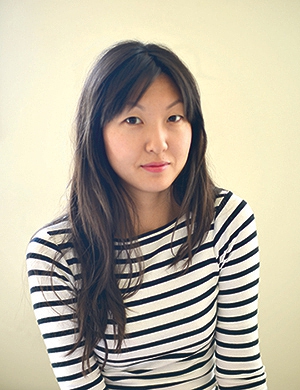
The writer Maurene Goo
But that fairly privileged and ambling journey wasn’t exactly the path that Lydia Kang and Ellen Oh took. Medical and law school-bound, Kang and Oh were the kind of kids that Korean parents dream of—the ones who are used in examples throughout your childhood as the barometers of ultimate “good children.” At least, that’s how it appears on the surface.
In some spectacular feat of sheer will and talent, both Kang and Oh ended up becoming young adult novelists in addition to their already impressive roster of accomplishments. Kang’s first installment of her dystopian sci-fi trilogy, Control, comes out this month, and Oh’s historical Korean fantasy Prophecy was released earlier this year, with the second book in the trilogy, Warrior, set to hit shelves later this month as well.
I met Kang and Oh through The Lucky 13s, an online community of 2013 debut young adult and middle grade authors. And I have to admit—I was a little intimidated by Kang and Oh when I first “met” them on the Lucky 13s online forum. For me, it took a decade of meeting dead ends in a fledgling career before I somehow became a published author. Then lo and behold, the other two Korean American gals in the Luckies are these super accomplished women. A doctor and ex-lawyer. Somewhere my parents are wondering, “Wait—you can be a doctor AND an author? What happened to you?” (Cue pounding of chests and clucks of disappointment.)
The Doctor
When I first joined The Lucky 13s, I was astounded by Lydia Kang. “Hm, a fellow Korean, I see,” I thought as I browsed her author website. Wait, she’s a doctor?! She’s also an administrator for the Luckies? Wow, she has 3,000 followers on Twitter and her book comes out in DECEMBER? She made spreadsheets for us to use for taxes? Who is this woman?
Born in Baltimore, Kang was raised by Korean immigrants and found herself the only Asian girl in her class until she transferred to a girls-only school in high school. “I had a horrible time in elementary school,” she says. “I was the only ethnic kid in class throughout that time and was on the receiving end of some pretty relentless bullying.” She channeled that torture into kicking ass in school and studying rigorously for college. After volunteering at the St. Luke’s ER in college, Kang set her sights set on becoming a doctor.
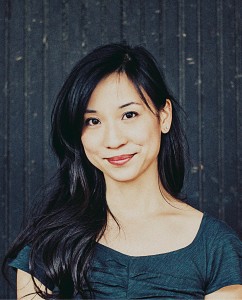
The writer, Lydia Kang
However, it wasn’t until she was working as a doctor that Kang considered writing. “I needed to decompress some difficult experiences I was having as a doctor, and wrote a creative non-fiction piece for the medical journal, Annals of Internal Medicine. It got accepted right away. I thought, hey, this is easy! So of course, that was followed by a string of rejections.” But keep in mind, Kang is the same person who as a kid excelled in school and got back at her bullies—she wasn’t going to let a few rejections dissuade her from the writing path. After making a move to Omaha, she joined a writer’s group that paired writers and authors with physicians called the Seven Doctors Project. In the group, established poets and fiction writers work with doctors who want to experiment with creative writing. After finding success in getting her poetry and non-fiction published, Kang finally found the nerve to pursue her dream of writing fiction—specifically, young adult fiction. “When I first started writing fiction, it was YA. I loved the idea of writing about firsts—that first kiss, that first foray into making adult choices that are often so, so difficult. That odd blend of being both a child and a mature being—it’s so exciting,” says Kang.
Surprisingly, the transition from physician to writer wasn’t difficult. Kang’s family also supported this new endeavor, their only concern being that she would tire herself out—the worry by parents of overachievers everywhere. For the next three years, Kang spent all her spare time writing and learning all about the publishing world.
Then, she came up with an idea for a YA novel about a future where certain humans have scientifically engineered mutations. “I wanted a character that was gifted in science and used it to solve the main puzzle in the story. I wanted her to be physically a sort of a runt, and yet she wouldn’t be some milquetoast heroine that needed saving.” Kang also drew upon her own science background to develop her characters and make them plausible: “I [wanted] to show how people could have some weird powers or traits, but base them somewhat believably in science.”
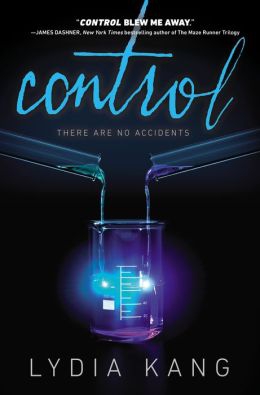
This novel, Control, landed her an agent who then sold the book to Penguin in late 2011. Kang now happily practices medicine part-time, and finds balance as both an author and doctor. “Unlike my parent’s generation, my identity is not defined by my career as a physician. I’m a little quirky,” she says. “It’s been strange to embrace that part of me, but also very liberating.”
The Lawyer
Like Kang, Oh’s childhood and teenage years were an exercise in resilience. Born in South Korea, Oh moved to the U.S. as a toddler and grew up in both Queens and Brooklyn, New York. Her elementary and middle school years were fraught with some truly horrific bullying, the kind that ends with a little girl getting her knee busted by a giant older boy for standing up to him.
It didn’t help that Oh was one of the few Asian kids growing up in her neighborhood. “I remember how bad the racism was. But my parents would take me to Korean church and all the Korean festivities so I never felt like I was missing out on an Asian community,” says Oh. And like a lot of other children of Asian immigrants, Oh suffered under some heavy-duty academic pressure. It was a given that she would be a doctor, and even as she was miserable during her pre-med major in college, her parents insisted on her staying the course.
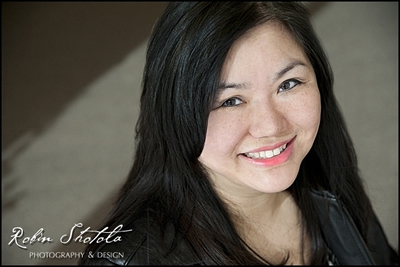
The writer Ellen Oh
Knowing she could support herself in school with her full ride to NYU and a summer job, Oh finally switched majors her junior year. “I was living at home at the time and my mother didn’t talk to me for nearly a year…She didn’t acknowledge me again until I got accepted into Georgetown University Law Center in February the following year.”
After graduating, Oh landed a job as a corporate associate at a private law firm in New York City. After a few years, she returned to Washington, DC where she worked at another private practice, then at the Corporation for Public Broadcasting, and eventually at the National Wildlife Federation where she was Vice President of Business and Legal Affairs for their television and film production department.
It wasn’t until Oh had three daughters that she began to take serious notice of the books they were reading. “And as they got older, I grew dissatisfied with the lack of cultural diversity in the books we were reading. We loved reading fantasies, but they were all Western-centric,” Oh says. She was also conscious of being a feminist raising three daughters. Oh wanted to “teach [her daughters] that girls can do anything a boy can do, and better.” She had also always loved writing but wanted a change after fifteen years of legal writing. While still working as a lawyer and eventually as a law school professor, she started attending some writing workshops again and completed a couple of novels.
But Oh kept coming back to the idea of a fantasy novel based on the myths and legends of Korea. And then in 2007, the idea took shape. Oh envisioned a legend about a great hero, who is supposedly a young prince. As it turns out, the real hero is his despised girl cousin. Oh wrote the “whole outline on little pieces of paper as I was stuck in traffic and ended up writing the whole book in five months.” Unlike the two books she had previously written, she says Prophecy was written with surprisingly fluidity. “It felt like it was meant to be told,” she says.
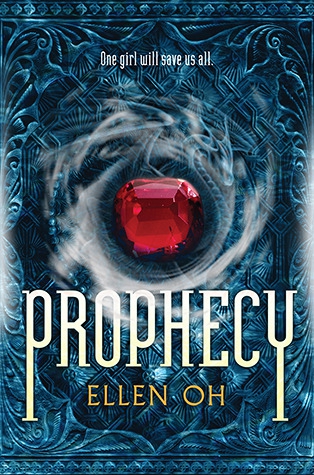
Once Prophecy was written, the path to finding an agent wasn’t easy. People discouraged her along the way, telling her that no one would want to buy a book about ancient Korea. The cultural elements of the book, naysayers believed, like the Korean names, would not be easily digestible for fussy American palates. But Oh—the little girl who stood up to bullies—believed in her story. “I feel like all I ever heard was no. But I never gave up on this book.” Oh landed her agent, and Prophecy sold to Harper Teen within two weeks of submission. She stopped practicing law several years ago and hasn’t looked back since. After fifteen years successfully working in that field, she says she “[finds] writing to be challenging and more fulfilling than practicing law.”
A creative medium ruled by outsiders, dystopic futures, fatal diseases, first kisses—and yes, vampires—young adult fiction resonates with so many readers who have long since outgrown their teenage years. Essentially, YA is about transformation—when everything is new because things are constantly changing. And in the end, that makes for some good stories. It’s no wonder that Kang, Oh and I found our way to this world: A world that welcomes both troubled and happy childhoods. It’s a remarkable space where a wanderer, a doctor, and a lawyer can finally find their voices.
When she’s not road-raging her way through her native Los Angeles, Maurene Goo spends her days writing young adult novels. Her latest book is the young adult novel, Since You Asked... See more at www.maurenegoo.com.






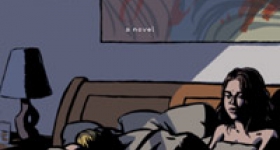

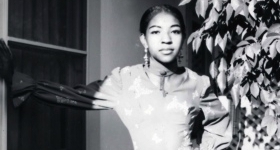
Comments